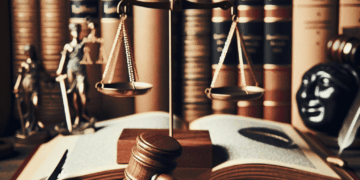No products in the cart.
Provider liability is a central topic in Internet law and deals with the question of the extent to which providers of Internet services (providers) can be held liable for illegal content or actions of their users. This issue is becoming increasingly relevant with the growing importance of the internet and the variety of online services on offer.
Key Facts
- Provider liability regulates the liability of internet service providers for the illegal content of their users.
- The legal basis is anchored in the TMG, the E-Commerce Directive and the UrhDaG.
- Differentiation between access, caching, hosting and content providers with different liability rules.
- Liability privileges apply to access, caching and hosting providers as long as they have no knowledge of any illegality.
- Technological developments and the international dimension pose challenges for provider liability.
- Companies must implement compliance and risk management in order to minimize liability risks.
- Regulation is increasing, which brings with it new obligations for providers, e.g. the NetzDG and DSA.
Legal basis
The legal basis for provider liability can be found in various laws and guidelines:
1 Telemedia Act (TMG): In Germany, Sections 7-10 TMG in particular regulate the responsibility of service providers.
2 E-Commerce Directive: At EU level, Directive 2000/31/EC provides the framework for the liability of providers.
3rd Copyright Service Provider Act (UrhDaG): This act transposes the EU Copyright Directive into German law and regulates the liability of upload platforms.
Types of providers
The law distinguishes between different types of providers, each of which is subject to specific liability rules:
1. access providers: They merely provide access to the Internet.
2. caching providers: They store information temporarily to speed up transmission.
3. hosting providers: They store third-party content for users.
4. content providers: They provide their own content.
Principles of provider liability
The liability of providers follows some basic principles:
1. liability privilege: Access, caching and hosting providers enjoy liability privileges under certain conditions. In principle, they are not liable for third-party content as long as they have no knowledge of its illegality.
2. notice-and-takedown: As soon as a provider becomes aware of illegal content, it must remove it immediately or block access to it.
3. no general monitoring obligation: Providers are not obliged to generally monitor the information transmitted or stored by them.
4. fault-based liability: Even if there is no direct liability, providers can be held liable for injunctive relief if they have violated reasonable inspection obligations.
Special features of various infringements
Provider liability may vary depending on the type of infringement:
1. copyright infringements: Special rules apply here, in particular for upload platforms in accordance with the UrhDaG.
2. violations of personal rights: In the event of violations of personal rights, such as insults or untrue factual claims, providers may be subject to stricter review obligations.
3. trademark infringements: In the area of trademark law, the liability of platform operators for infringements by their users may be aggravated under certain circumstances.
Current developments and challenges
Provider liability faces various challenges:
1. technological development: New services and technologies are constantly raising new questions about the responsibility of providers.
2. international dimension: The cross-border nature of the Internet makes it difficult to enforce liability rules uniformly.
3. balancing act between law enforcement and freedom of expression: A balance must be struck between protecting rights and guaranteeing freedom of expression.
4. increasing regulation: New laws such as the Network Enforcement Act (NetzDG) or the EU’s planned Digital Services Act (DSA) are leading to new obligations for providers.
Importance for companies
Provider liability has far-reaching consequences for companies acting as providers:
1. compliance: systems and processes must be implemented to identify and remove illegal content.
2. risk management: The potential liability risks must be assessed and minimized through appropriate measures.
3. terms and conditions of use: The general terms and conditions and usage guidelines must be carefully designed to limit liability risks.
4. international aspects: Companies must take into account the different liability regimes in different countries.
Conclusion
Provider liability remains a complex and dynamic area of law. It attempts to strike a balance between the interests of rights holders, providers and users. For companies acting as providers, it is essential to know the legal framework in detail and to design their services accordingly.
In view of the ongoing technological development and increasing regulation, it can be assumed that the rules on provider liability will continue to evolve. Companies should follow these developments closely and adapt their business models and compliance strategies accordingly.





















